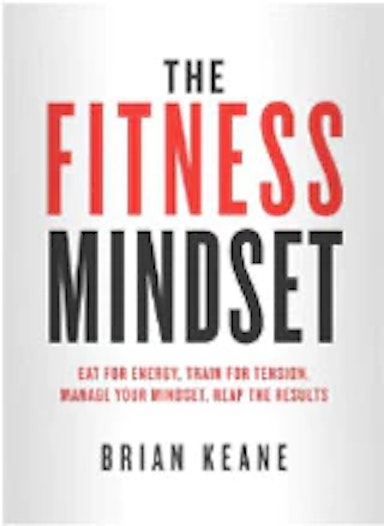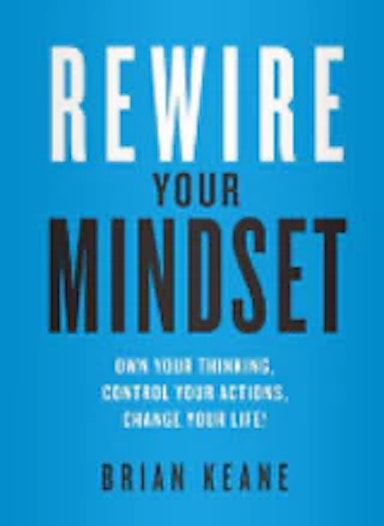How to fix Irritable Bowel Syndrome (IBS)
- By Brian Keane
Yesterday I talked about finding the ‘triggers’ for your IBS and before I get into the recovery strategies that I used; it’s worth noting any emotional cost that IBS has left you with; thinking about these emotional costs and tying enough pain to them can make cutting bread or processed food seem very easy in comparison.
HOW IBS RUINED MY NIGHTS OUT:
Sometimes you can associate the symptoms with eating specific foods or experiencing some other specific trigger, but other times your symptoms are completely unpredictable. I’ve sense learnt how the actually stress of thinking about what may happen on a night out can cause a negative feedback loop which triggers an attack.
On several occasions, I remember planning for nights out with friends, when suddenly I would have an IBS attack and be curled up in bed. I remember being particularly hurt on one occasion when a group of friends were discussing where to go one Saturday night and one of my closest friends at the time joked ‘you don’t get a say, you’ll just go back to bed sick anyways’ (I’ve since learnt that all comments are perspectives of situations but I didn’t understand that at 22 and it hurt nonetheless).
The old adage once bitten, twice shy comes into play here; if you’ve had one horrible experience of being out with friends, at a party or on a night out and your IBS kicks in; it makes you question whether ‘going out’ is worth it. This is something I dealt with for years; I had such a fear that ‘my stomach would bother me’ on a night out that I just didn’t bother anymore. In my early twenties, I regularly get ready for nights out, put my good clothes on, wax my hair only to get a wave of fear last minute and decide against it. Does this sound familiar?
FEARING FOOD:
Another fear common to people with IBS is eating. For people without IBS, this sounds bizarre but as anyone with IBS will tell you, eating just one meal can trigger a bout of symptoms. It’s incredible how this fear can rob you of one of life’s greatest pleasures, the enjoyment of good food but the risk to reward of eating new food never seems to be worth it.
The fear of eating can cause havoc with your social life; at home you can stock your cupboard with foods that work for your body but you can’t control what goes into your food in restaurants, cafes and bars. Even though I’ve more or less fixed my IBS, I still bring food with me everywhere as skipping meals can play mayhem with your IBS (see recovery tip 2). This also has the added benefit of keeping blood sugar stable which increases energy and can aid with fat loss and muscle building from a hormonal standpoint.
Now this ‘fear of food’ can go both ways, I was so stringent with what foods I ate, that I’ve lived a large portion or my life with a ‘food is for function’ mentality, which has served me greatly in my fitness goals. That being said, it’s very disheartening to eat a week of chicken, sweet potato and broccoli only to have your IBS flare up at weekends and swell your stomach to that of 4-month pregnant woman.
THIS IS HOW I FIXED IT!
I actually think the heading should be ‘this is how I managed it’ as you never really ‘fix’ IBS. It’s kind of like sweeping the floor, you can sweep it one day and it’s clean but if you don’t do it every day, the floor gets dirty again.
I haven’t had an attack in over a year (after 10 year of random attacks and regular bloating) and that’s down to avoiding the trigger and applying these recovery strategies below but I know if I eat a trigger food or don’t stay on top of it, it can come back pretty quickly. I’m not going to sugar coat it, there’s is no ‘magic pill’ or ‘silver bullet’ that you can take and your gut will be perfect and you can just be ‘normal’ but I will tell you that you can improve your life ten and even hundred fold if you avoid your triggers and apply these strategies.
RECOVERY STRATAGIES:
1) EXERCISE:
This doesn’t have to be 6 or 7 days in the gym; on the contrary, over training can be just as bad for your IBS but your exercise can be as little as a 20 minute walk every day but just do something! ‘An ounce of prevention is worth a pound of cure’.
How to do it: 4 or 5 days a week, either do a 20 minute home workout, go for a walk or go to the gym. I cannot stress enough how much regular exercise can help. If you need home workout ideas, I’m releasing a free 20-minute home workout eBook later this week so make sure to download that.
2) DON’T SKIP MEALS:
Skipping meals can put your digestion system under a lot of strain and this is the last thing you want with IBS. I always like to think of my digestive system like a muscle, when you use a muscle regularly, it gets stronger and works better; your digestive system is the same. Eating good quality foods regularly spaced throughout the day can allow you to break down foods more efficiently. The side benefit of this is you will also balance out your blood sugars which can give you more energy through the and actually speed up fat loss as a result of hormone balancing.
How to do it: I never leave home without some food packed in my backpack. Sometimes you won’t have time to bring a full lunch or last night’s dinner but a shaker of protein and 50g of oats or a pack of nuts are great ‘go to’ snacks so you don’t go long stretches without eating.
3) ELMINATING TRIGGER FOODS:
It’s absolutely crucial that you find your trigger foods and eliminate them from your diet. Some are worse than others (for example, I can’t have wheat as it ruins my gut every time) but small amounts of sugar and dairy are fine once I don’t over do it.
How to do it: Eliminate all your trigger foods for 6 weeks and then slowly reintroduce some. If you re-introduce and get a flare up, keep note and avoid that food going forward. If you eat a normal trigger food and only get mild or no discomfort, keep note that it’s still a trigger food but you can handle it in moderate amounts.
4) SUPPLEMENTS:
Supplements can play a really important role in helping to repair your intestinal wall and I’ve tried everything from Aloe Vera juice to ginger tablets. To be completely honest, nothing works better than eating good quality foods, regular exercise and spacing meals but there are a few worth adding in.
– Peppermint Oil Capsules: This have been a lifesaver for me, a lot of us turn to antacids and Gavison when we have an attract; peppermint or aniseed (which is a great IBS tea too). Menthol and methyl salicylate are the main active ingredients of peppermint. Internally, they have anti-spasmodic actions, with calming effects on the muscles of the stomach, intestinal tract, and uterus.
How to take them: for prevention, I find two 400mg (any brand) with two meals helps tremendously. If you get an attack, I tend to take 400mg every thirty minutes until the spasms subside. Note: you will get a acid reflux of peppermint the first few times you use it very similar to that of anti-acids.
– Probiotic: Why probiotics seem to work is still something of a mystery, but some studies suggest that probiotic supplements, especially those with a predominance of Bifidobacterium infantis, alleviate IBS symptoms like abdominal pain, bloating, and bowel movement irregularity. All I can say is they work and they continue to work with all my IBS clients.
How to take it: 40-50billion good bacteria based probitioc. I use the Udo’s Choice Super 8’s.
5) SLEEP:
“A good laugh and a long sleep are the best cures for anything” – Irish proverb.
IBS is funny because you it can give you a really bad negative feedback loop of ‘eat a trigger food, body goes into fight or flight, which negatively affects your sleep, which lowers will-power which leads to eating more trigger food the next day’ and the cycle continues.
Once you cut your trigger food, your body will come out of a constant ‘fight or flight’ and your sleep should improve.
If you need more tips on how to get a betters night’s sleep or what supplements to use to help, check out my blog posts on sleep.
Coming tomorrow:
TEN IBS TRIGGERS THAT YOU MIGHT NOT HAVE THOUGHT OF!
– Caffeine,
– Late nights
– Fibre
– Fatty Meals


